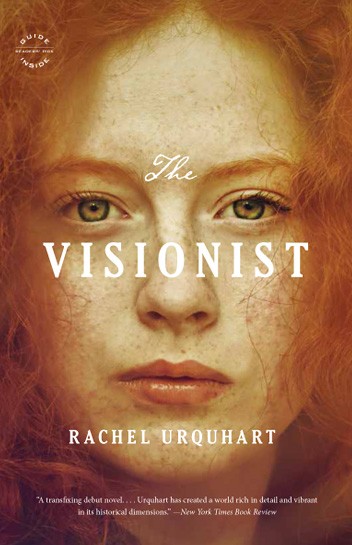reading guide
Questions and Topics for Discussion
1) What did you know about Shakers before reading this novel? How has your opinion of them changed? Did anything that you learned surprise you?
2) Some people have interpreted The Visionist as a feminist novel, or at least a novel with a feminist subtext because of the ways in which Shaker society valued gender equality. Discuss the Shaker custom of shedding biological ties, as well as the lack of emphasis placed on maternity, through a feminist lens. Do you think modern feminists would judge Shakers positively? Why or why not?
3) How did celibacy act as both a restraint and a safety net for women in the City of Hope?
4) To be a Shaker was to sign on to an isolated existence—one with no contact with the opposite sex, total confession, complete divestiture of material wealth and, perhaps most shockingly, the loss of one’s biological family. But for some people, life inside a Shaker community made sense, especially given the grueling poverty that plagued 1840s New England. Are certain types of people who seem more suited to the Shaker lifestyle than others? Could you ever imagine living in the City of Hope? What would be the hardest sacrifice for you?
5) The Shakers value routine and hardship, and yet to some readers certain Shaker rituals might seem pointless. For example, Polly is taught “to cut her food into squares and never on the diagonal, for such was the slant of the Devil. To keep separate the bounty that lay on her plate, never mixing it into a hash..." What are the benefits, if any, to these small, less vital rituals? In light of the fact that the Shakers do not value blood ties and do not reproduce, do you think these rituals serve as a way to maintain tradition, to connect the present to the past? What do their rituals give back to them?
6) What symmetry did you notice between Polly and Charity. How does impurity manifest itself in each girl? How do they change each other?
7) Simon Pryor is a complex character. How did your feelings about him change over the course of the novel? What role does redemption play in his narrative? In the narratives of the other two main characters? How does each of the characters experience or perception of redemption differ and why?
8) Did your opinion of Elder Sister Agnes change as you learned more about her background?
9) What do you see as some possible dangers of living in a community as closely knit as the City of Hope? Are there any modern manifestations of these dangers that you would compare it to?
10) Polly is both physically and mentally haunted by her father. Do you think she can ever stop feeling haunted by him? If so, what would make this possible? What aspects of her experience in the City of Hope are particularly helpful to her recovery from the abuse she has suffered? Are there parallels to be drawn to modern-day methods?
11) Much of The Visionist explores the power of sisterhood and friendship, yet the book ends with Polly and Charity at odds with one another. Why do you think the author chose to end on that note?
READING GUIDE PDF FILE
_________________________
Download the Reading Guide
pdf file for The Visionist here.
